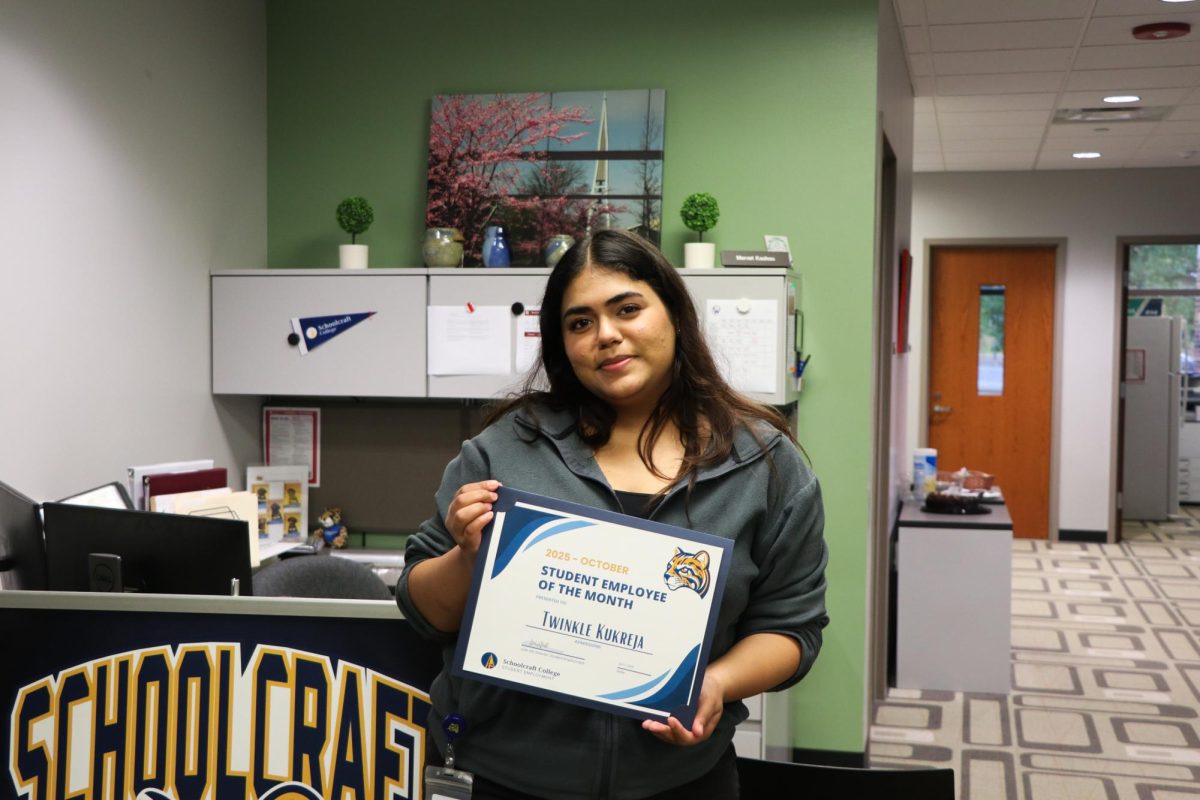Entering college is a significant milestone in one’s educational journey. Whether it is a transition from high school or a return to school after a long hiatus due to personal or financial reasons. College can be especially challenging when one is juggling various roles.
Many of us are parents, full-time workers, leaders, athletes, social workers and more. Excelling in college may seem impossible, but with the right strategies one can thrive in academics. We have gathered insights from accomplished students across different age groups and backgrounds to compile a list of tips to help you succeed in college.
Vision board
Having a clear vision of your goals ignites passion and motivates life improvement. Constructing a vision board by writing your passions, visualizing post-graduation possibilities, envisioning where you see yourself in the future and including inspirational quotes can be a great way to achieve this. By personalizing your vision board, it helps fuel your drive and you can display it somewhere in your room for inspiration. Kendall Borchardt, a Pre-Med major and Secretary of the Phi Theta Kappa Omicron Iota chapter lives by perseverance saying, “I remind myself of the future I want and then take steps to achieve it. A quote I wrote is ‘just because I cannot do this right now, doesn’t mean I am incapable of doing it ever.”
Time management and organization
Effective time management is the linchpin of success. All the student leaders interviewed emphasized ‘planning’. Ashley Xu, a Computer Science major and President of the Asian Student’s Association, underscores the value of proactive organization.
“Planning things ahead of time is beneficial for me. Having a structured schedule that outlines my commitments, like classes, work, clubs and other responsibilities, enables me to budget my time effectively allowing some fun time to alleviate stress,” said Xu.
Borchardt employs multiple calendars in her planning, starting her day with a prioritized list, tackling simple tasks first and then addressing more complex challenges.
Karen Iyolo, President of The International Student Club, studying Cybersecurity, recommends breaking down study sessions for major exams into smaller, daily chunks to avoid future stress. Our leaders employ various organizational tools, such as planners, reminders, to-do lists and schedules. Find a system that works for you. When scheduling blocks of time for classes, study sessions, work and extracurricular activities, remember to incorporate breaks to sustain focus and productivity.
Avoiding distractions and prioritizing self-care
Borchardt acknowledges the challenges of studying at home amidst potential chaos with two younger siblings. To combat distractions, she seeks out a quiet space for concentration.
Xu adopts a similar approach to sidestep diversions, stating, “I find a quiet spot at a coffee shop, Bradner library, or a quiet area on campus. During this time, I do not socialize; I channel my focus into my studies.”
Even when studying at home, being mindful of potential distractions is crucial. Kathryn Wenske, the Editor-in-Chief of the Schoolcraft Connection, attaining an Associate’s in Science, invented a Nine to Seven strategy for fighting distraction and prioritizing self-care. “Structure wise I plan everything ahead of time, I accomplish daily tasks by 9 p.m. and will turn off my phone from 9 p.m. to 7 a.m. to prioritize self-care.” She suggests emphasizes being a student first while engaging in different activities, however, to also prioritize self-care saying, “I am also first and then come student.”
Stowing away the phone while studying can help combat distractions. Ensure you are taking care of your mental and physical well-being by getting enough sleep, eating well, hydrating yourself and engaging in regular physical activity.
Student involvement
Participate actively in your classes by joining discussions, asking questions and taking comprehensive notes. Iyolo emphasizes involvement beyond academics, advising, “Do not think college is just studying; get involved in clubs and activities to have some fun and be inspired by fellow students.”
Utilize resources
Schoolcraft College offers a wealth of resources to support your academic journey. Make the most of libraries, writing centers, tutoring services, accommodations and study groups. These resources provide insights, guidance and a collaborative learning environment.
Don’t hesitate to seek help, especially from your professors who appreciate inquisitive students and are here to assist. Reach out via email, utilize office hours, or participate in study groups to deepen your understanding.
Study techniques
Experiment with various study techniques to identify what works best for you. The Pomodoro Method, involving focused intervals with short breaks, can be helpful. Borchardt finds creating flashcards and using colored pens effective. Teaching what you have learned to someone else also helps. Wenske emphasizes the importance of a clean study space, noting “if my space is cluttered, I feel like my mind is cluttered.”
Acknowledge blessings and challenges
Recognize your support system and those who cheer you on. Cultivating humility is a valuable skill for success, both in academia and in life. Surround yourself with positive individuals and radiate positivity in return. Express gratitude to those who support you on your journey, be it parents, a spouse, a friend, a professor or a colleague.
Simultaneously, acknowledge your challenges. These could relate to accommodation, finances or toxic relationships. Distance yourself from individuals who drag you down. For situations beyond your immediate control, develop long-term strategies to overcome obstacles. Sharing your concerns with a trusted confidant or writing them down can provide a glimmer of hope during dark times.
Set realistic goals and reward yourself
Establish attainable academic goals by breaking larger tasks into manageable steps. Celebrate your accomplishments, no matter how small. Iyolo enjoys a movie after task completion. Xu goes to a park or meets friends after a demanding week of studying. Allocate time for something you love.
While our leaders encourage involvement in student activities, they also emphasize the importance of avoiding burnout. Xu cautions, “If extra activities jeopardize your studies, it is not worth it but if it holds significance to you, reassess the responsibilities and try to balance everything.”
All the leaders confidently affirm, “You got this.”









